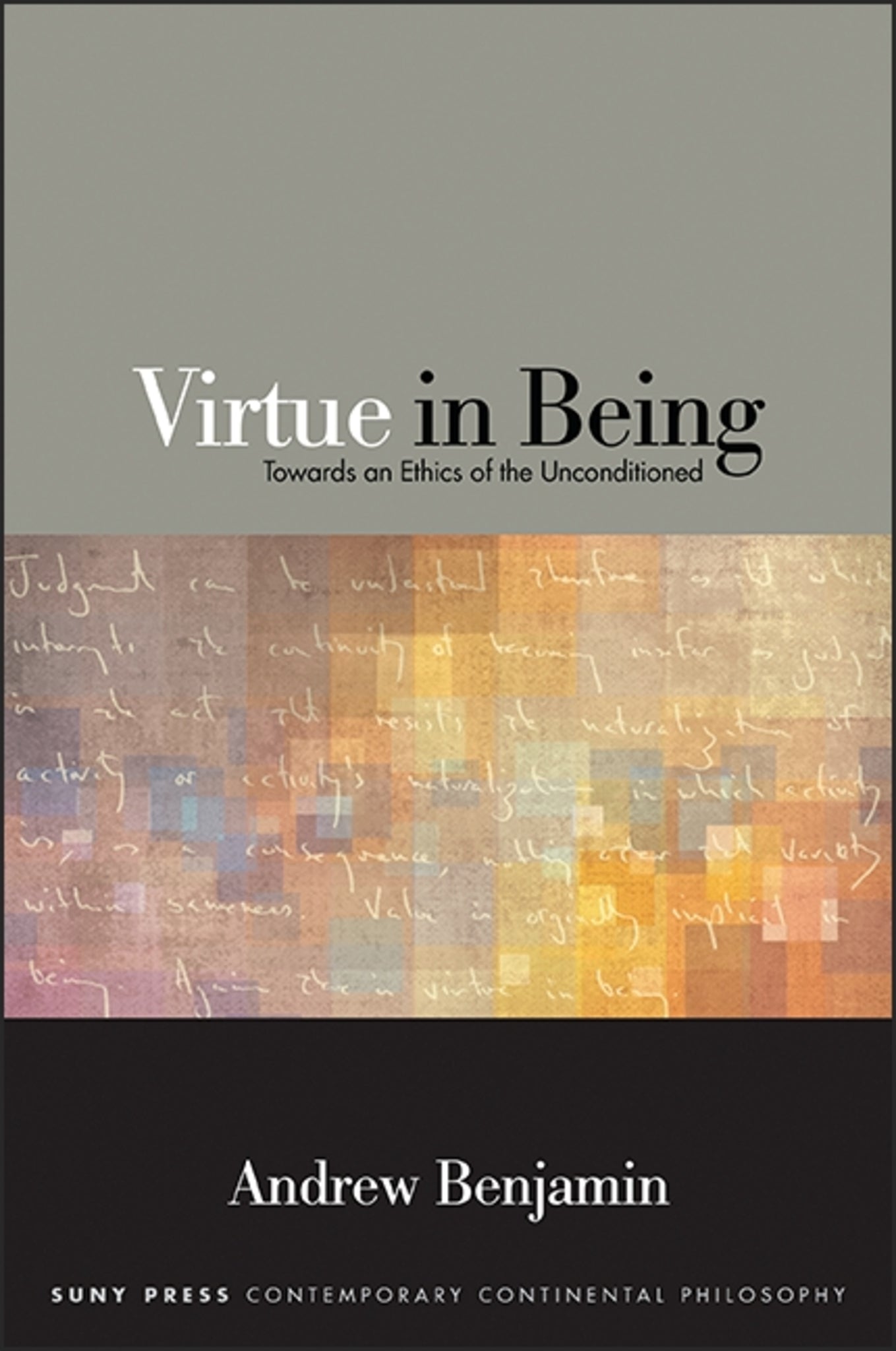We're sorry. An error has occurred
Please cancel or retry.
Virtue in Being

Some error occured while loading the Quick View. Please close the Quick View and try reloading the page.
Couldn't load pickup availability
- Format:
-
02 July 2017

A radical rethinking of ethics set within the development of a philosophical anthropology.
In his last book, Towards a Relational Ontology, Andrew Benjamin provided a philosophical account of what he terms anoriginal relationality, demonstrating how this concept can be seen to be at work throughout the history of philosophy. In Virtue in Being, he builds on that project to argue for a new way of understanding the relationship between ontology and ethics through insightful readings of texts by Immanuel Kant, Hannah Arendt, and Jacques Derrida. Structuring the book around the themes of violence, evil, and pardon, Benjamin builds a convincing case for the connections he draws between thinkers not commonly associated with one another.


"In this original and engaging study, Benjamin opens a nuanced dialogue between the work of Kant, Arendt, and Derrida to create a conversation about virtue that illuminates our human condition. Benjamin's innovative scholarship enriches our understanding of each of the figures he treats." — Elizabeth Millán Brusslan, author of Friedrich Schlegel and the Emergence of Romantic Philosophy
Acknowledgments
Introduction
1. Toward the Unconditioned: Kant, Epicurus and Glückseligkeit
2. Arendt and the Time of the Pardon
3. Kant, Evil, and the Unconditioned
4. Judgment after Derrida
Notes
Bibliography
Index



